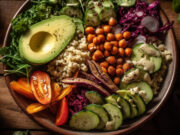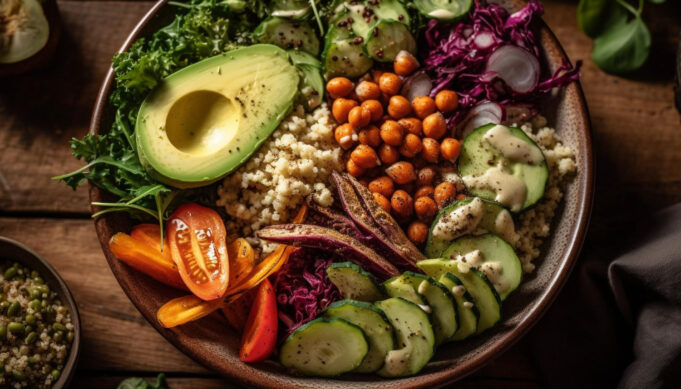Switching to a plant-based diet requires careful planning to ensure you get all the necessary nutrients. Whether you’re going vegetarian or vegan, it’s important to choose foods wisely to avoid any nutrient deficiencies. Veganism is becoming increasingly popular worldwide, driven by various reasons including health benefits associated with a plant-based diet.
However, if you’re considering a 100% plant-based diet, it’s essential to plan ahead to meet your body’s needs. This includes knowing which plant-based foods to incorporate to ensure you’re getting enough protein and other essential nutrients

Why adopt a healthy and vegan diet?
Fruits, seeds, grains, and vegetables are packed with fiber and essential nutrients that support the body’s functions. Scientific studies show that a plant-based diet boosts the immune system. Plus, eating plenty of vegetables can help maintain a healthy weight.
But, switching to a healthier diet can be challenging for some. To make it simpler, consider adding a plant-based supplement like those from Juice Plus+ to your vegan diet. These supplements can provide extra support and nutrients.
How to adopt a healthy and vegan diet?
Wondering what foods to pick for vegetarian meals? Curious about what to include in your daily meals without animal proteins or fats? Here are some delicious options to help you eat healthier.
Vegetarian Burgers

Veggie burgers can be made from a variety of ingredients like oatmeal, rice, couscous, quinoa, and dried vegetables such as beans, lentils, or chickpeas. These main ingredients are often mixed with fresh sautéed or boiled vegetables like onion, carrot, or broccoli. Chopped cooked vegetables are typically added to the mixture. To make each burger more firm, you can add a binder like corn starch, wheat flour, or chickpea flour to the mixture.
Dried vegetables

When we think of legumes, we often just think of beans and lentils. But there’s actually a wide variety of pulses to try. Chickpeas, lentils, beans (black, white, red), soy, and more are waiting to be discovered. Plus, each type of legume has different varieties with unique flavors.
Legumes have a long shelf life, so you can store them for a long time without losing their nutrients, as long as they’re kept in dry and cool places. It’s best to use fresh or dried legumes and try to avoid canned foods, which usually have high levels of sodium.
Quinoa

Quinoa is a seed packed with fiber, protein, and various vitamins and minerals. It’s a powerhouse of minerals like calcium, magnesium, potassium, iron, and zinc. Plus, it’s rich in vitamins and is an excellent source of iron. Including this superfood in your vegan diet is essential.
Tofu

This is a product similar in consistency to cheese, but made from soy. You can find it in different types: soft, firm, or extra-firm. Soft tofu is great for soups, sauces, and desserts, while firmer tofu works well in stir-fries and salads. Instead of cheese, consider using tofu, nut butter, or nutritional yeast in your recipes.
Jackfruit

This fruit usually grows in tropical areas. While it’s not rich in protein, its pulpy texture resembles meat, making it a great addition to many plant-based meals. Despite being lesser-known, you can find it fresh or canned in some stores.
Plant Milks

You have plenty of options for milk, yogurt, and cream substitutes, like almonds, soy, oats, cashews, coconut, and various plants. It’s a good idea to pick plant-based milks enriched with calcium and vitamin D.
If you find it hard to give up animal products completely, there’s another option. Many people choose a semi-vegetarian diet, also known as a flexitarian diet, for an easier transition. This diet focuses mainly on plants but allows small amounts of meat, dairy, eggs, and fish.

Dr. Alex Powell
Doctor and Former Medical Director
























